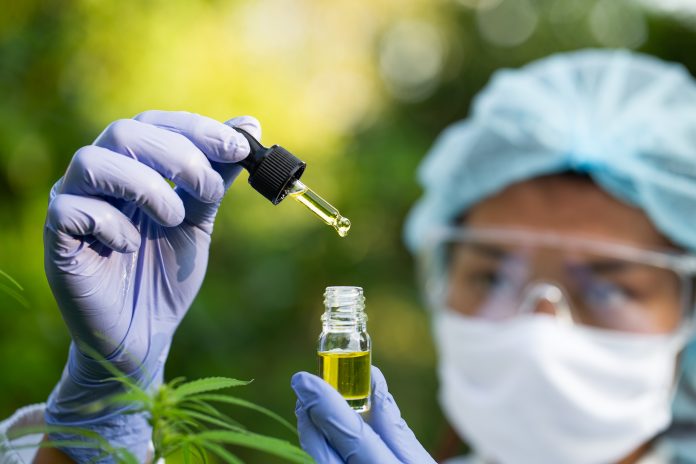Here Kathleen Denoodt explains the role of ECDD and why she believes the recommendations of the investigative report should be followed
The get a full and correct picture of the discussion, we need to go back to letter of January 24th 2019 sent by Dr Tedros Adhanom Ghebreysus, Director General of the WHO to Mr Antonio Guterres, Secretary General of the UN. This informed him that the ECDD convened from 12 to 16 November 2018 at the WHO Headquarters in Geneva, carrying out a critical review of cannabis and cannabis-related substances to determine the level of international control for cannabis and cannabis-related substances. It also told him whether the WHO should recommend changes to their level of control.
This letter already asks, among 4 other recommendations, to add a footnote to the entry for cannabis and cannabis-related substances in the Single Convention on Narcotic Drugs (1961). The proposed text for the footnote is: “preparations containing predominantly cannabidiol and not more than 0.2% of delta-9-tetrahydrocannabinol are not under international control.” The reasoning for this proposed change is clear, as “there is no relevant risk to the public health”.
So far, so good.
All 5 proposals were already supposed to be put to a vote by Narcotic Drugs in March 2019, but the Commission decided to postpone the WHO recommendations vote to give the states more time to consider them.
Next step: During the intersessional meetings (held on 24 June and 23 September 2019) the Commission considered the WHO recommendations on cannabis and cannabis-related substances. They could ask questions to the WHO representatives, representatives of the secretariat of the International Narcotics Board (INCB) and UNDOC.
During the March 2020 meeting the commission will have more information at hand. Among this information is a note made by the secretariat and a Q&A relating to the WHO recommendations on cannabis and cannabis-related substances, as well as a paper with comments given by the states to the single convention of 1961.
What happens after March 2020?
The European Commission proposes a unified vote for all EU countries, suggesting that a unified vote would have better chance of passing. Unfortunately, the unified vote would recommend a postponement (“a further assessment”) because CBD with no more than 0.2% THC would no longer need international control.
The European Commission says that there is no scientific evidence supporting that “there is no relevant risk to the public health”, and the wording of this recommendation does not exclude possible divergent interpretations concerning the way of calculating the limit. This is a strange interpretation by the European Commission, the recommendation comes following reviews by ECDD. The ECDD is the Expert Committee on Drug Dependence. The Committee consists of an independent group of experts in the field of drugs and medicines.
The ECDD assesses the health risks and benefits of the use of psychoactive substances according to a set of fixed criteria.
What are these fixed criteria?
- Evidence of dependence potential of the substance
- Actual abuse and/or evidence of likelihood of abuse
- Therapeutic applications of the substance
Depending on the outcome of the assessment of a specific substance the Committee may advise:
- To place the substance under international control (place it in one of the Schedules)
- To transfer the substance from one Schedule to another (leading to more or less control measures)
- To delete the substance from a Schedule (putting an end to control)
- To keep the substance under surveillance out of a lack of evidence for actual abuse or dependency.
The recommendations of the Expert Committee are based on the best available scientific, medical and public health evidence and must comply with the criteria established in the conventions. Specific rules and procedures for the evaluation of substances are published in Guidance on the WHO review of psychoactive substances for international control. The science of substance evaluation has evolved over time and the methods of the Expert Committee are continuously adapted to embrace newly emerging insights.
The CND convenes each year in March, Vienna. It reviews and analyses the global drug situation, considering the interrelated issues of prevention of drug abuse, rehabilitation of drug users and supply and trafficking in illicit drugs. It acts through resolutions and decisions. The CND decides, based on WHO recommendations, where to place narcotic drugs and psychotropic substances under international control.
When reading the PPP of Lisbon Addictions 2019 (EMCCDA) it is clear the the main concern is about quality and labeling of preparations containing predominantly cannabidiol and not more than 0.2% of delta-9-tetrahydrocannabinol. I truly think the scientific evidence is there, since the Cannabidiol (CBD) Critical Review Report drafted by the ECDD during the fortieth meeting in Geneva 4-7 June 2018. This report investigates and clearly describes:
- Dependence potential both in:
- Animal studies (no tolerance to CBD at any dosage was observed)
- Human studies (no controlled human studies)
- Abuse potential in:
- Animal studies: the observed effect is the opposite to that of drugs of abuse such as cocaine, methamphetamine and opioids
- Human studies: very little studies but research indicates that CBD is not associated with abuse potential.
Isn’t it remarkable that the European Commission questions the recommendation of this group of independent experts? Especially on the deletion of preparations containing predominantly cannabidiol and not more than 0.2% of delta-9-tetrahydrocannabinol, which will no longer be under international control.
Given all this information, the EU countries, at the time of the redaction of this article, were still in limbo about this draft unified vote. I do not think that denying the scientific evidence reviewed by experts will solve the worries about the quality and content of CBD products on the market.
Let’s see what the month of March brings for low THC cannabis and CBD at the UN and WHO. Meanwhile I am curious what the US congress will do with Bill HR5587 (amending the Federal Food, Drug and Cosmetic Act) during an election year.
To be continued…
Please note: This is a commercial profile











